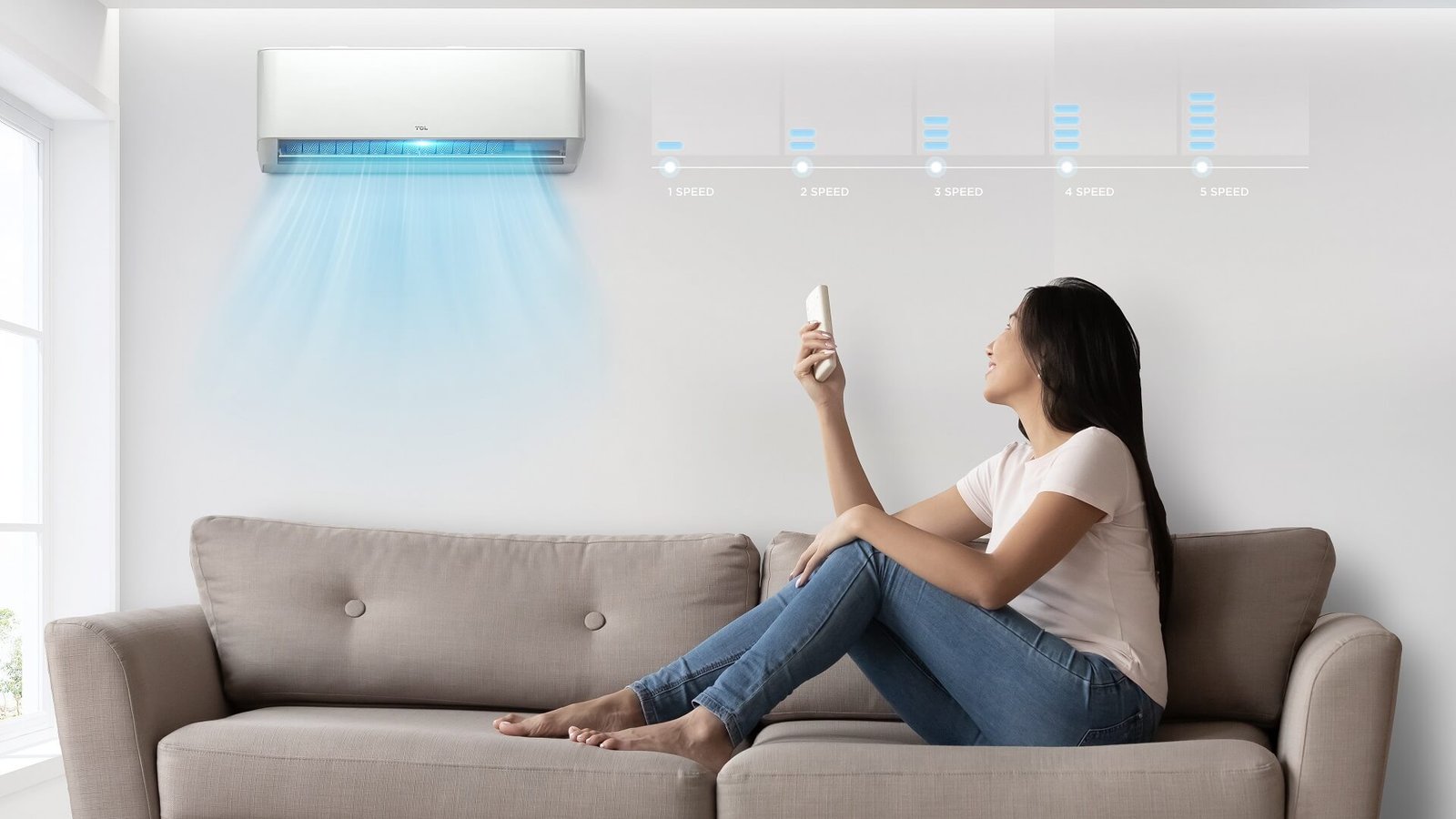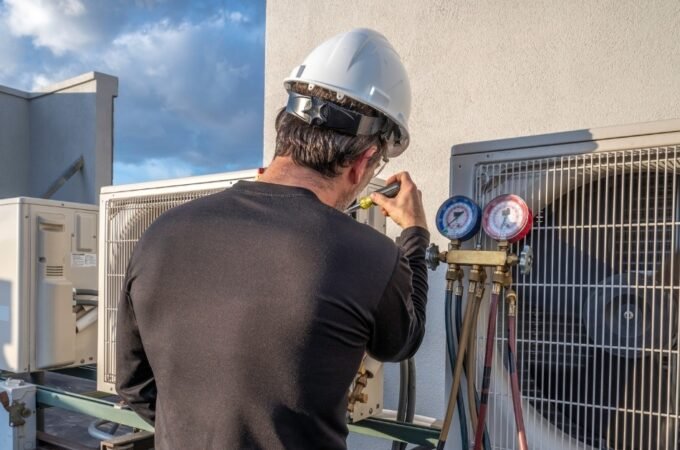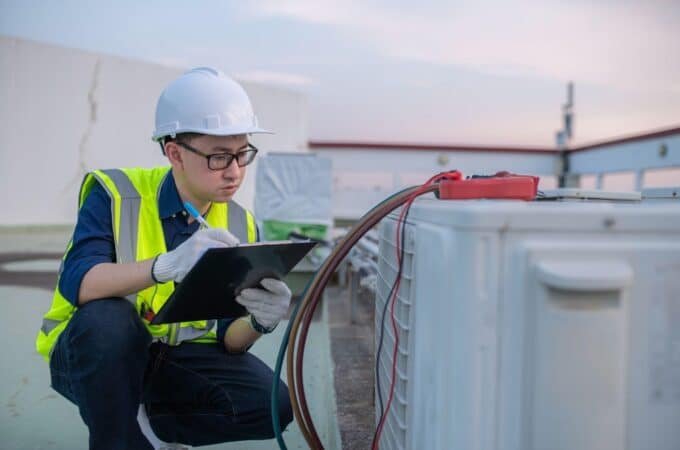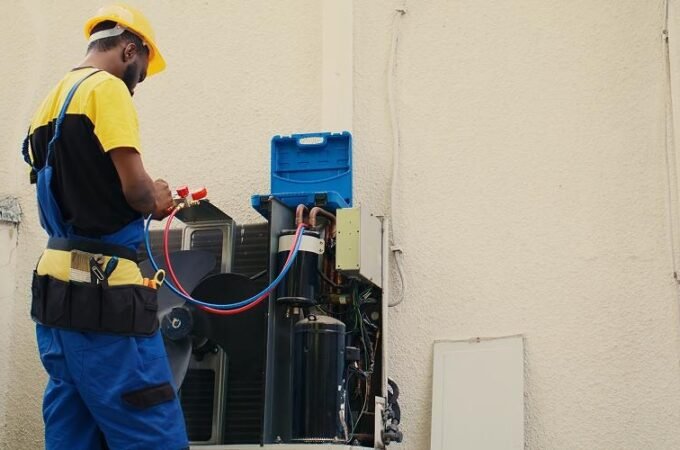
How to Choose the Right Air Conditioning System for Your Home
Table of Contents
ToggleKey Takeaways
- Assess your home’s size, layout, and insulation to determine cooling requirements. Understanding these unique characteristics helps prevent both overcooling and undercooling, which can contribute to wasted energy and discomfort.
- Understand the different types of air conditioning systems and their suitability. Each system has its own advantages, ideal applications, and limitations, making it vital to compare your options carefully.
- Prioritize energy efficiency to reduce long-term costs, considering not just the purchase price but also how much the unit will cost to run for years to come.
- Consider additional features like smart controls and air quality enhancements to make your air conditioner more convenient and healthier for your home environment.
- Ensure professional installation and regular maintenance for optimal performance, reliability, and longevity of your AC system investment.
Assess Your Home’s Cooling Needs
A successful air conditioning installation begins with a thorough understanding of your home’s unique cooling requirements, which can vary significantly depending on several factors. Not all homes are the same—elements like the size of your house, the number of rooms, ceiling height, how spaces are divided, and the presence of open spaces or high-traffic areas all play a role in determining the best system. For example, expansive open-concept homes may require a centralized system to distribute air evenly, while smaller or more compartmentalized residences may benefit from targeted, zone-specific solutions.
Insulation is another critical factor in how effectively your home retains cool air. Well-insulated homes limit heat transfer, so your air conditioner won’t need to work as hard or run as often to maintain comfortable indoor temperatures. Homes with poor insulation, on the other hand, will force your AC to compensate for constant heat infiltration, leading to increased wear, higher energy bills, and uneven cooling. An honest assessment of your insulation—including walls, attic, doors, and windows—is essential before selecting a new system. Insulation is crucial in how efficiently your home retains cool air, directly impacting your air conditioning system’s performance. A well-insulated home reduces heat transfer, helping your AC maintain a consistent indoor temperature without excessive strain.
In contrast, poor insulation forces your system to work harder to combat ongoing heat intrusion, resulting in uneven cooling, higher utility costs, and accelerated wear. Before investing in a new unit, it is wise to evaluate insulation in your walls, attic, windows, and doors. If budget is a concern, Winter Haven HVAC financing options can make upgrading your insulation and cooling system easier without compromising comfort or energy efficiency.
It’s also important to consider sun exposure. The placement, size, and orientation of your windows can profoundly affect how quickly your home heats up during the day. Homes with large windows, skylights, or those facing south or west tend to absorb and retain more solar heat, especially in the afternoon. In such situations, it may be necessary to choose a system with a larger cooling capacity to prevent uncomfortable hotspots and ensure every room remains cool, even on the brightest days.
Types of Air Conditioning Systems
Once you’ve assessed your home’s cooling load, evaluating the available air conditioning system options becomes the next crucial step. Each system has characteristics that make it better suited for certain home designs and usage needs:
- Central Air Conditioning: Best for large, multi-room homes, central AC systems use a network of ducts to distribute conditioned air throughout the house. They provide even cooling, reduce humidity levels, and can be very energy efficient when paired with modern thermostats and regular maintenance.
- Ductless Mini-Split Systems: These units allow for zoned cooling, making them ideal for additions, renovated spaces, or homes that don’t have existing ductwork. Ductless systems are often lauded for their energy efficiency and quiet operation. They also allow you to set different temperatures in different rooms, tailoring comfort to each space.
- Window Units: Cost-effective and relatively simple to install, window units are suitable for cooling single rooms or temporary situations. However, they’re generally less energy efficient than central and ductless systems, and may struggle to cool large or open rooms adequately.
- Portable Air Conditioners: These units offer versatility and can be moved from room to room, making them a practical choice for renters or for occasional cooling needs. While convenient, portable ACs usually have lower energy efficiency and capacity than permanently installed systems.
When choosing the correct type of air conditioning system for your home, carefully weigh the pros and cons of each system against your property’s structure, personal comfort preferences, and budget. To dive deeper into the options and read comparisons based on real-world testing, Consumer Reports is a trusted resource that guides homeowners through these important decisions.
Energy Efficiency and SEER Ratings
With rising energy costs and growing environmental concerns, selecting an energy-efficient air conditioning system has become a top priority for many homeowners. The SEER (Seasonal Energy Efficiency Ratio) rating is the national standard for measuring air conditioner efficiency. It reflects how much cooling output a unit provides relative to the energy it consumes under typical operating conditions. The higher the SEER rating, the more efficient the system is, translating to lower energy use and smaller monthly utility bills.
For most homes, a SEER rating of 14 or above hits a practical balance between purchase cost and long-term savings. Models rated as high as SEER 20 or more are available, providing advanced technology for those seeking maximum efficiency and future-proofing their investment against stricter regulations. While high-efficiency units often have a higher upfront price, many homeowners find that the reduced operating costs quickly offset the initial investment. Understanding how SEER ratings work will help you select the best value for your needs. More details can be found at Energy Saver by the U.S. Department of Energy, which offers insights on energy performance requirements and savings calculators.
Additional Features to Consider
Modern air conditioning systems surpass basic temperature control by offering features that improve convenience, indoor air quality, and energy management. Key features to consider include:
- Programmable Thermostats: These allow you to set daily or weekly temperature schedules, ensuring your system runs only when needed, which cuts down on energy waste and enhances comfort when you’re home.
- Smart Controls: With Wi-Fi-enabled thermostats and mobile apps, you can remotely monitor and adjust your home’s temperature from anywhere, saving money and tailoring comfort even on the go.
- Air Quality Improvements: Systems with built-in air purification features can trap allergens, dust, and bacteria, making them ideal for homes with allergy or asthma concerns. Integrated dehumidifiers also prevent mold growth and help maintain a pleasant indoor environment during muggy weather.
When weighing these features, consider which benefits would have the most positive impact on your daily life. Improved air quality may be a must for families with pets, children, or allergy sufferers. For frequent travelers, smart controls offer ultimate peace of mind and savings.
Professional Installation and Maintenance
No matter how advanced your system is, improper installation can undermine its efficiency and lifespan. Certified HVAC professionals bring expertise that ensures your air conditioning unit is sized correctly, installed according to manufacturer specifications, and complies with local building codes. This step not only optimizes system performance and extends its reliability, but also helps protect your warranty coverage in the event of any future issues.
Regular maintenance supports peak efficiency and prevents avoidable breakdowns. Annual or seasonal professional check-ups include cleaning evaporator and condenser coils, checking refrigerant levels, inspecting electrical connections, and changing filters. Timely maintenance can detect small issues before they become costly repairs and help maintain indoor air quality throughout the year.
Budget Considerations
When choosing a new air conditioner, it is important to achieve the right balance of comfort, energy savings, and affordability. While it may be tempting to opt for the least expensive option up front, don’t overlook the potential for increased operating costs, lower reliability, and reduced resale value. Premium and energy-efficient models often provide a strong return on investment through lower monthly energy bills and increased comfort that can add value to your home.
Financing programs can ease the burden of up-front costs and allow you to select the most suitable—and efficient—system for your needs. In addition to the unit price, remember to budget for regular filter changes, professional servicing, and predictable energy consumption throughout the cooling season. Considering the total cost of ownership will guide you toward a decision that meets your financial goals and provides dependable, worry-free comfort every summer.

Benjamin Ortiz is a digital marketing expert. He currently runs an SEO agency and a survival gear review blog.





